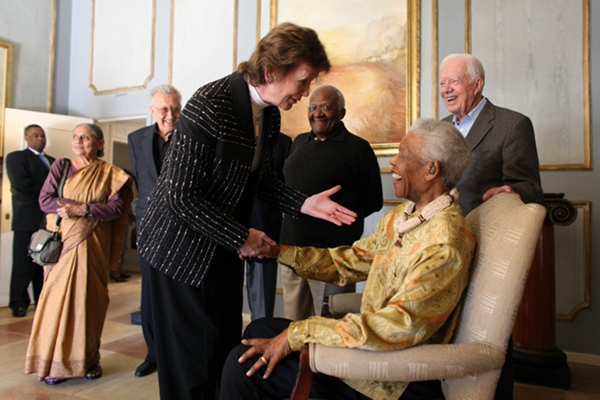On the 5th of August Mary Robinson delivered the annual Nelson Mandela lecture in Cape Town. It should have been an occasion when the former Irish President and UN Human Rights Commissioner looked back on South Africa’s achievements since the end of apartheid. Yet her speech will probably be remembered for just one sentence: ‘…the ANC’s moral authority has been eroded, tainted by allegations of corruption; a temporary betrayal of its history.’
From an old friend of the ruling party this was damning indeed, but is she right to refer to corruption as a ‘temporary betrayal?’ The ANC’s history is more complex and more difficult than supporters like Mrs Robinson are prepared to acknowledge. We now know that even in exile the party had corrupt relationships and forged links with organised crime.
The late Joe Modise, head of the ANC’s military wing used rank and file fighters to run a series of criminal activities, including the distribution of drugs and the theft of cars. It was hardly surprising then that Modise, as South Africa’s first Minister of Defence, was deeply implicated in the notorious arms deal. The decision to spend between $6bn and $8bn on weaponry was driven by an estimated $300m of bribes, with Modise taking his share.
Nor was Modise alone. President Thabo Mbeki’s right hand man, Frank Chikane, recently revealed that drugs traffickers made contact with senior members of the ANC during their years in exile.
These included Jackie Selebi, South Africa’s former chief of police, who was subsequently jailed for corruption. Among the charges against him was the selling of British Customs and Excise intelligence to the convicted drugs trafficker, Glenn Agliotti. In a lecture in July this year, Chikane said that these links went back many years. ‘Criminals planned your future,’ he told his audience. ‘Check who visited us and people in Lusaka and who brought money to assist the ANC. That’s when Jackie Selebi made contact with Glenn Agliotti.’
While these links may oil the wheels at the highest level, bribery and corruption is now endemic across government. The Auditor General’s most recent report suggested that only 5 per cent of all municipalities could be certified ‘clean’. Government tenders are routinely awarded to party members, many of them ‘deployed’ by the ANC to their posts, with little regard for their expertise or qualifications.
Jeremy Cronin, the deputy head of the ANC’s ally, the South African Communist Party, recently explained the system using the analogy of snakes and ladders: ‘If you land on the right square, by securing a regional chairpersonship in the ANC for instance, you might suddenly find yourself on a heady upward ascension. But if you lose your footing, you are liable to fall rapidly down a very long snake, back to zero and abject poverty.’
On the face of it South Africa is a functioning democracy with regular, free elections, a robust press and a powerful judiciary. But beneath this veneer darker forces are at play, fuelling internal party conflicts.
Who Rules South Africa attempts to look at who really pulls the levers of power.
Who Rules South Africa by Martin Plaut and Paul Holden is published by Biteback Publishing, at 14.99. Available at a special price of £9.99






Comments